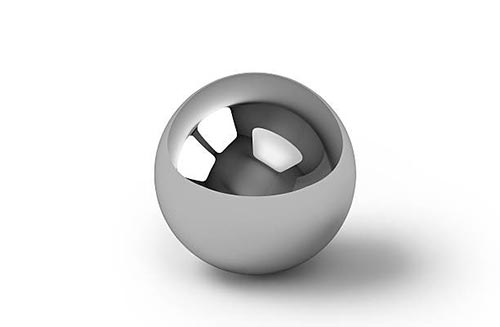The Importance of Forged Steel Ball Sizes
Views: 849 Update Date:Sep 30 , 2024
When it comes to industrial applications, the humble forged steel ball plays a crucial role in countless machines and processes. But did you know that these robust spheres come in a dizzying array of sizes?
1. Precision: The right size ensures optimal performance in bearings and other mechanisms.
2. Load capacity: Larger balls can generally handle heavier loads.
3. Speed: Smaller balls often allow for higher rotational speeds.
4. Fit: Correct sizing is crucial for proper installation and function.
- Miniature: 1mm to 4.76mm (3/16")
- Small: 6.35mm (1/4") to 12.7mm (1/2")
- Medium: 15.875mm (5/8") to 25.4mm (1")
- Large: 31.75mm (1-1/4") to 50.8mm (2")
- Extra Large: 63.5mm (2-1/2") and above
- Application requirements (load, speed, environment)
- Material compatibility
- Tolerances and precision needs
- Cost and availability
- Future maintenance and replacement ease
Pro tip: Always consult with a qualified engineer or the ball manufacturer if you're unsure about sizing. It's better to ask questions now than face costly mistakes later!

1. Raw steel is heated to extreme temperatures.
2. The hot metal is formed into rough ball shapes.
3. These shapes are then forged under immense pressure.
4. The balls are heat-treated for strength and durability.
5. Finally, they're ground and polished to precise dimensions.
This rigorous process ensures that each forged steel ball meets exact size specifications, often with tolerances measured in microns!
- Automotive: Often uses smaller balls (6-15mm) in bearings and valve systems.
- Mining: Prefers larger sizes (50-100mm) for grinding and crushing operations.
- Aerospace: Requires ultra-precise balls in various sizes for critical components.
- Sports equipment: Uses mid-range sizes (20-40mm) in items like bicycle pedals.
Conclusion
Understanding forged steel ball sizes is crucial for anyone working in industries that rely on these versatile components. By considering factors like application requirements, manufacturing processes, and industry-specific needs, you can make informed decisions about the right size for your project.
Remember, when it comes to forged steel balls, size isn't everything – but it's certainly a big deal! So next time you're faced with a sizing decision, you'll be armed with the knowledge to make the right choice.
Prev: Forged Steel Ball Price: What You Need to Know
Next: Durability and Performance of Forged Steel Balls
The Importance of Size in Forged Steel Balls
Size isn't just a number when it comes to forged steel balls. It's a critical factor that can make or break your project. Here's why:1. Precision: The right size ensures optimal performance in bearings and other mechanisms.
2. Load capacity: Larger balls can generally handle heavier loads.
3. Speed: Smaller balls often allow for higher rotational speeds.
4. Fit: Correct sizing is crucial for proper installation and function.
Common Forged Steel Ball Sizes
Forged steel balls come in a wide range of sizes to suit various applications. Here's a quick overview of some popular dimensions:- Miniature: 1mm to 4.76mm (3/16")
- Small: 6.35mm (1/4") to 12.7mm (1/2")
- Medium: 15.875mm (5/8") to 25.4mm (1")
- Large: 31.75mm (1-1/4") to 50.8mm (2")
- Extra Large: 63.5mm (2-1/2") and above
Choosing the Right Size: Factors to Consider
Selecting the appropriate forged steel ball size isn't just about measuring a hole. Consider these factors:- Application requirements (load, speed, environment)
- Material compatibility
- Tolerances and precision needs
- Cost and availability
- Future maintenance and replacement ease
Pro tip: Always consult with a qualified engineer or the ball manufacturer if you're unsure about sizing. It's better to ask questions now than face costly mistakes later!

How Forged Steel Balls Are Sized
Ever wondered how these perfect spheres are created? The process is fascinating:1. Raw steel is heated to extreme temperatures.
2. The hot metal is formed into rough ball shapes.
3. These shapes are then forged under immense pressure.
4. The balls are heat-treated for strength and durability.
5. Finally, they're ground and polished to precise dimensions.
This rigorous process ensures that each forged steel ball meets exact size specifications, often with tolerances measured in microns!
Size Matters: Industry-Specific Applications
Different industries rely on specific forged steel ball sizes:- Automotive: Often uses smaller balls (6-15mm) in bearings and valve systems.
- Mining: Prefers larger sizes (50-100mm) for grinding and crushing operations.
- Aerospace: Requires ultra-precise balls in various sizes for critical components.
- Sports equipment: Uses mid-range sizes (20-40mm) in items like bicycle pedals.
Conclusion
Understanding forged steel ball sizes is crucial for anyone working in industries that rely on these versatile components. By considering factors like application requirements, manufacturing processes, and industry-specific needs, you can make informed decisions about the right size for your project.
Remember, when it comes to forged steel balls, size isn't everything – but it's certainly a big deal! So next time you're faced with a sizing decision, you'll be armed with the knowledge to make the right choice.





